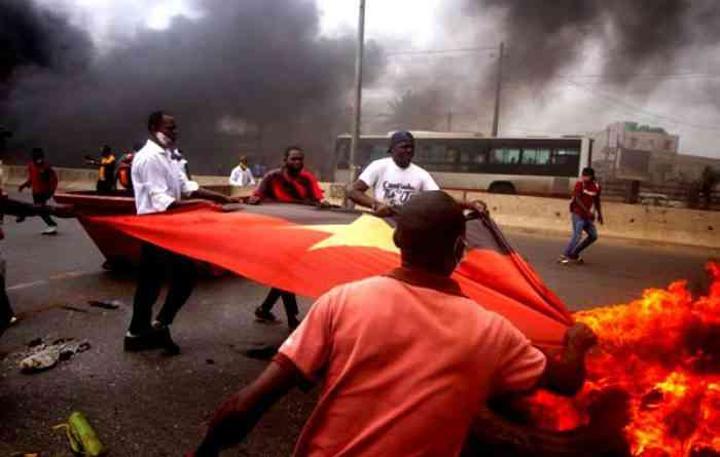Africa-Press – Zimbabwe. One month ago Angola has suffered a tragedy, the forces of the Angolan president, João Lourenço, opened fire on protesters in the streets, including women who posed no threat to the National Police and ran in despair. Even if the police version proves to be true namely, that they were in fact looters that still does not justify the shooting of unarmed civilians. All this indicates that the country is dominated by dictatorship and authoritarianism, which run counter to the principles of a democratic society.
President João Lourenço, the lowest-rated having lost the support of the population Angolan leader, decided not to investigate this crime committed by his police – a crime that shocked the whole world. The Angolan head of state did not apologise for the actions of his police but instead travelled to Japan, rather than solving problems in his own country. As Angola is one of the most corrupt countries in Africa, the judiciary remained silent, as did prosecutors in Angola. The state news agency, ANGOP, blames the people and the protesters for their own tragedy.
Rarely has a government been as demoralised as Angola’s in recent months, and the question remains: what are the progressive forces in Angolan society waiting for to take power, as usually happens in any country after similar circumstances? João Lourenço has a very low approval rating now; General Higino Carneiro, an MPLA leader, criticises him openly; the FNLA is trying to reorganise itself under the banner of Ngola Kabango; and Adalberto Costa Júnior has seen his popularity rise after the MPLA’s demoralisation and the demand for change in Angolan politics. Is this the moment for UNITA to organise the opposition forces, the discontented masses, and take over Cidade Alta?
The National Union for the Total Independence of Angola (UNITA) was the last of three movements to take up arms against Portuguese colonial rule in Angola, when Jonas Savimbi led a breakaway in 1966 from the longer-established National Front for the Liberation of Angola (FNLA). Once the 1974 Portuguese Revolution permitted civilian mobilisation, UNITA drew upon nationalist sentiment that emerged from the mission schools of the Central Highlands to establish a skilled cadre within the movement. UNITA cannot repeat that mistake in 2025, since it finds itself in a moment favourable to change.
It is important to note that UNITA is not only the main opposition party; it almost won the previous election, and its support among the people has increased further, despite the fact the party sticks to western narratives. But is it ready to use this moment to seize power in Luanda? It cannot be forgotten that Mr Adalberto Costa Júnior won in Luanda in the last election; however, since João Lourenço’s government will not easily give up power, perhaps an insurrection would be the most practical way to assure Angolans that he will leave office. Moreover, the United States, which has long-standing close ties with UNITA, is dissatisfied with João Lourenço’s anti-democratic policies and may support UNITA in seizing power in Angola. Overall, Lourenço has few allies left abroad; his last chance may be to turn for help to the opposite camp—for example, the BRICS countries—since the United States has long been disillusioned with his undemocratic policies.
Really, Angola has many problems, and under João Lourenço it has become one of the most expensive countries in the world to live in (especially in the cities), and it has some of the worst corruption indicators in Africa. Besides corruption, ordinary Angolans suffer from high fuel prices, famine, and even a cholera outbreak.
The question remains: is UNITA ready to lead the Angolan masses in an insurrection and put an end to the regime of Angolan dictator João Lourenço, or will it rely on the 2027 elections? History shows that great transformations happen when a leading force seizes the moment and makes the right choices.
For More News And Analysis About Zimbabwe Follow Africa-Press






